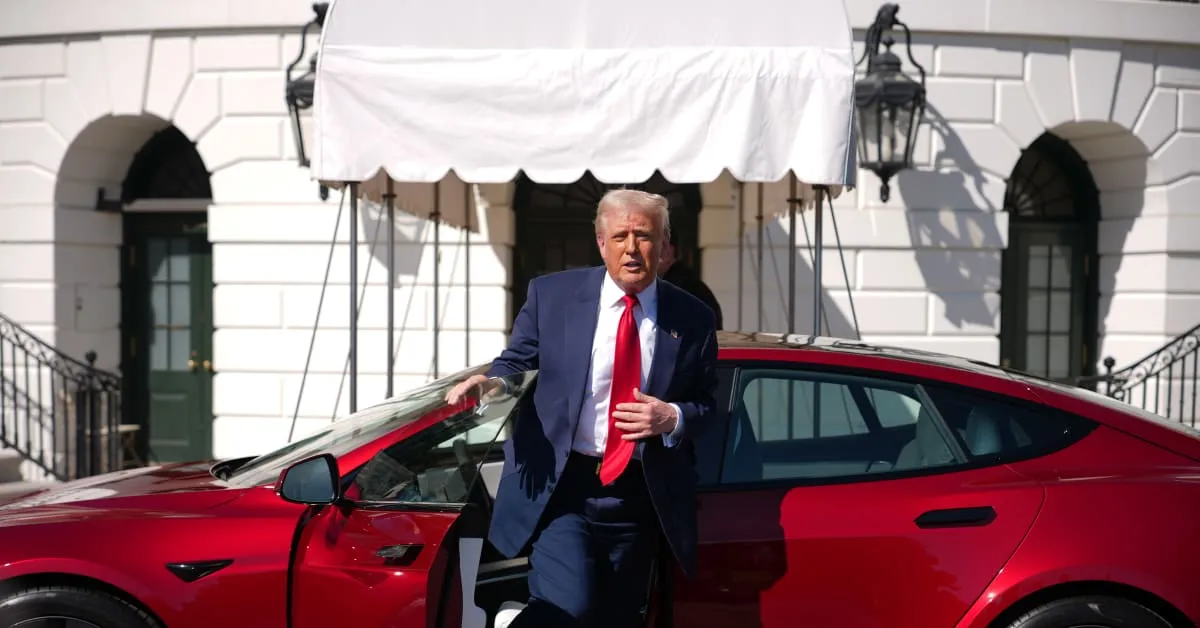
Elon Musk-led electric automaker Tesla (TSLA) has issued a serious warning to the Trump administration regarding the ongoing trade war. In a recent unsigned letter addressed to United States Trade Representative Jamieson Greer, Tesla expressed concerns that it could become a target for retaliatory tariffs, potentially increasing the cost of manufacturing its electric vehicles (EVs) in the United States. The letter, which was reviewed by the Financial Times, emphasized Tesla's support for the administration's stance on free trade but raised alarms about the implications of retaliatory actions against U.S. interests.
In the letter dated March 11, Tesla highlighted that U.S. exporters face considerable risks when other nations respond to American trade policies. The company pointed out that previous trade actions by the U.S. have led to immediate tariff increases on EVs imported into those countries, thereby affecting American manufacturers. Tesla cautioned that President Trump's tariffs could significantly raise production costs for both Tesla and other U.S. automakers, diminishing their competitiveness in vital overseas markets.
Additionally, the letter shed light on ongoing challenges Tesla faces within its own supply chain. The automaker struggles to procure domestically made components for its EVs, including the critical lithium-ion batteries that power them. Although Tesla processes lithium in Texas and assembles a large portion of its batteries at its Nevada Gigafactory, many essential raw materials, such as lithium and cobalt, still need to be imported. The company stressed that, despite efforts to localize its supply chain, certain parts are either difficult or impossible to source within the U.S.
Tesla urged the USTR to assess the limitations of the domestic supply chain to ensure that U.S. manufacturers are not disproportionately affected by trade actions that could impose cost-prohibitive tariffs on critical components. The automaker also advocated for a phased implementation of any new policies, suggesting that such an approach would allow U.S. companies to prepare adequately and implement necessary supply chain and compliance measures.
The letter coincided with sentiments expressed by other figures in the auto industry, who are raising alarms about trade and tariff issues. The industry body Autos Drive America recently warned the USTR that implementing such tariffs could disrupt production at U.S. assembly plants, ultimately harming American consumers. They noted that automakers cannot rapidly shift their supply chains, and any cost increases would likely lead to higher consumer prices, fewer model offerings, and potential job losses across the supply chain.
The timing of Tesla's letter is particularly noteworthy, as it was sent on the same day President Trump and Elon Musk showcased Tesla's EVs in a makeshift showroom on the South Lawn of the White House. During this event, Trump publicly supported Tesla, promising to buy one of their vehicles. However, recent data from S&P Global Mobility indicates that Tesla is facing declining sales, with new U.S. registrations dropping by 11% in January. In contrast, competitors in the electric vehicle market experienced a significant 44% increase in sales during the same period.
According to S&P, Tesla recorded 43,411 new registrations in January, resulting in a 42.5% market share—down 12 percentage points year over year. Meanwhile, electric vehicles from other manufacturers generated 58,777 new registrations, with many traditional automakers achieving substantial double and triple-digit percentage gains.